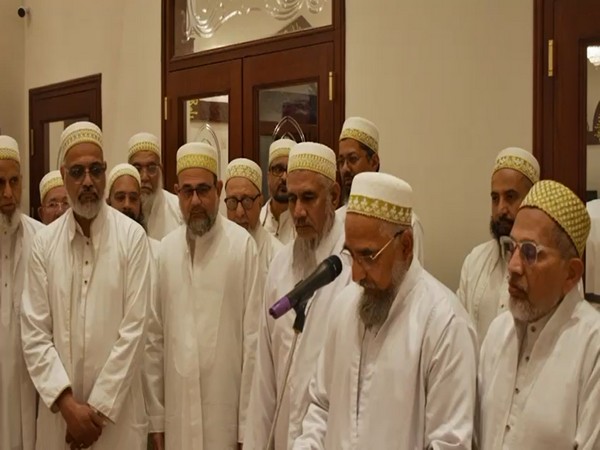US unveils new policy encouraging government ties with Taiwan officials
Apr 09, 2021

Washington, April 10 : In what could be called another massive blow to China, the United States has issued new guidelines that encourage exchanges with Taiwanese counterparts, State Department spokesperson Ned Price said on Friday.
According to South China Morning Post, the guidelines is a move made to bring Washington into compliance with a law signed by former President Donald Trump.
"The Department of State has issued new guidelines for US government interaction with Taiwan counterparts to encourage US government engagement with Taiwan that reflects our deepening unofficial relationship. The guidance underscores Taiwan is a vibrant democracy and important security and economic partner that is also a force for good in the international community," Price said in a statement.
He added: "These new guidelines liberalize guidance on contacts with Taiwan, consistent with our unofficial relations, and provide clarity throughout the Executive Branch on effective implementation of our "one China" policy, which is guided by the Taiwan Relations Act, the three Joint Communiques, and the Six Assurances."
The department spokesperson said further that the new guidelines have been issued following a review as set forth in the Taiwan Assurance Act.
According to South China Morning Post, a State Department representative said that meetings could now take place in government buildings.
"As just one example, we now encourage working-level meetings to be held in federal buildings. Such meetings can also take place at [the Taipei Economic and Cultural Representative Office]," he said, referring to Taiwan's de facto embassy in New York. "Those meetings were prohibited under previous guidance."
Friday's announcement comes amid heightened tensions between the US and China over Taiwan.
Trump signed the legislation into law along with the Tibetan Policy and Support Act in December, a move that Chinese Foreign Ministry spokesman Zhao Lijian said afterwards Beijing "resolutely opposed".
Earlier on Friday, White House spokesperson Jen Psaki told reporters on Friday that Washington has been watching China's aggressive actions against Taiwan very closely and raising concerns about it both publicly and privately.
"We have been clear publicly and privately expressing our concern, our growing concerns about China's aggression towards Taiwan. China is taking increasingly coercive action to undercut democracy in Taiwan," Psaki said during the briefing.
US lawmakers plan to introduce legislation next week that would put additional sanctions on Chinese officials; build closer US relations with Taiwan and place more checks on Beijing's military operations and territorial claims, among other measures intended to counter China and the threat it poses on human rights and maritime security.
Price on Wednesday stated that the United States maintains the capacity to resist any resort to force or other forms of coercion that would jeopardize the security or the social or economic system of the people on Taiwan.
Beijing claims full sovereignty over Taiwan, a democracy of almost 24 million people located off the southeastern coast of mainland China, despite the fact that the two sides have been governed separately for more than seven decades.
Taipei, on the other hand, has countered the Chinese aggression by increasing strategic ties with democracies including the US, which has been repeatedly opposed by Beijing. China has threatened that "Taiwan's independence" means war.
Taiwan returned to the forefront of US-China tensions last weekend when Beijing sent more than two dozen warplanes into the self-governing island's air defence identification zone in a 48-hour period.

















